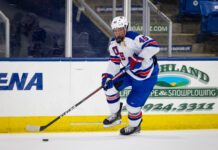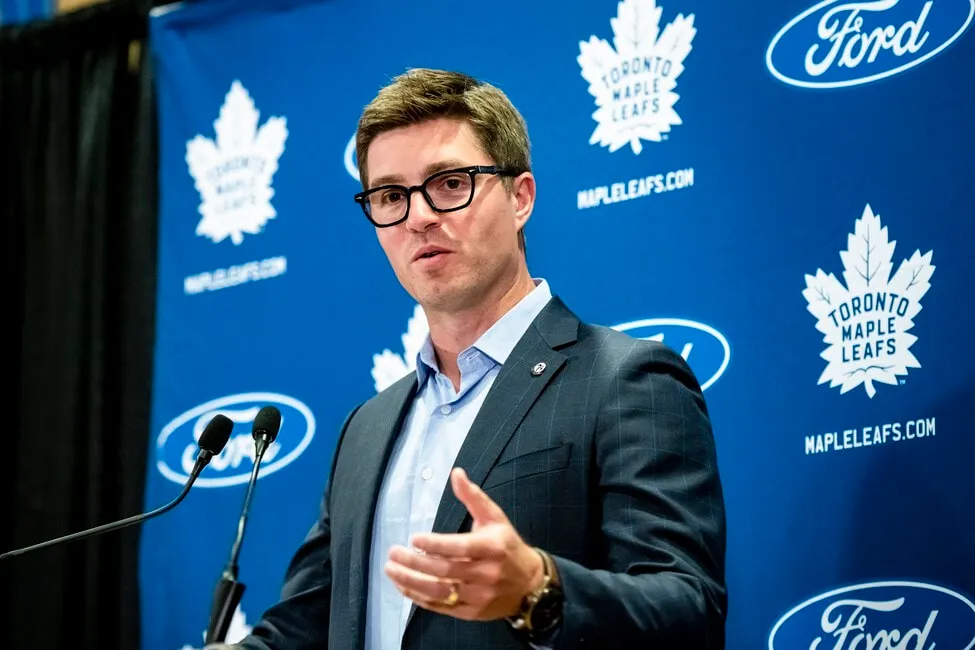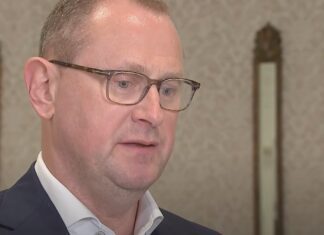A few weeks out from the start of training camp, General Manager Kyle Dubas sat down with Bob McCown and John Shannon for a lengthy interview that touched on the team’s repeated playoff failures, the possibility that the 2021-22 season is his final opportunity to win as GM of the Maple Leafs, Morgan Rielly’s contract situation, the team’s offseason additions, and his abiding faith in his core players.
How has the summer gone for you?
Dubas: It’s been fast, but we are back up and rolling. We start our development camp today with our young players and rookies. We are off to Traverse City, Michigan next week for the rookie tournament hosted by Detroit. We are less than two weeks away from training camp starting. Summer is effectively over, and we are on to the 2021-22 season.
How agonizing has the offseason been?
Dubas: There has just been so much. We finished on May 31. Obviously, it was hugely disappointing, and then you are right into your preparation for expansion. We had a number of staff hires to make here on the coaching side at all levels.
It has been interesting how fast it has gone by, which I think — given the way the season ended — is a good thing. It goes by fast, and you get a chance to pick yourself back up, get at it again quickly, and get rolling. Between the staff changes, the expansion draft, draft, and free agency through July, it has gone by very, very quickly. The agony happened early, and then you have to dust yourself off and get back at it.
You have hired Dean Chynoweth after losing Dave Hakstol to Seattle. What will Hakstol’s absence change?
Dubas: That is probably a question that Sheldon can better answer. Having gone through that process with him in replacing Hak on our staff, we added Dean from Carolina, where he did a really, really good job with their defense and penalty kill. Our hope is that it is as seamless as possible.
Whenever you lose anybody from any enterprise, you are hoping you can replace them with someone as good or better. Hak is obviously one of the best in hockey at what he was doing with us, and that has earned him a chance to get back into the lead chair with Seattle. For us, it is trying to replace what he did here with our defense and the penalty kill with the best person we can find. We are fortunate to have Dean join us.
We also added Spencer Carbery, who was the AHL coach of the year last year in Hershey. He will round out the staff in addition to Manny Malhotra, who returned. We are excited about where we are at and where we are going with the coaching staff. For me, it is the most excited I have been about our coaching staff in my time here overall.
Can you give us an update on John Tavares? Do you expect everything to be fine with him in relation to his injury next year?
Dubas: I expect so, but it is the type of injury where, unlike something purely physical, you don’t truly know until someone gets back at it and fully immerses back into practice and exhibition games and such. All seems to be good.
John feels great. He is in the facility working and skating each day. He looks great. I know he has worked his butt off during the summer to continue to build on the way that he finished last year for us. I am excited to see him up and rolling. He is obviously a massive part of our team as a captain and as a center.
Our major concern always with an injury of that nature is his health in the long run. It is about protecting that, but we are now three months past it, and all seems to be going smoothly.
Kyle Dubas on the team’s playoff failures, his own job security: “[The fans] don’t want to hear us say anything… They want to see us go out and do it”
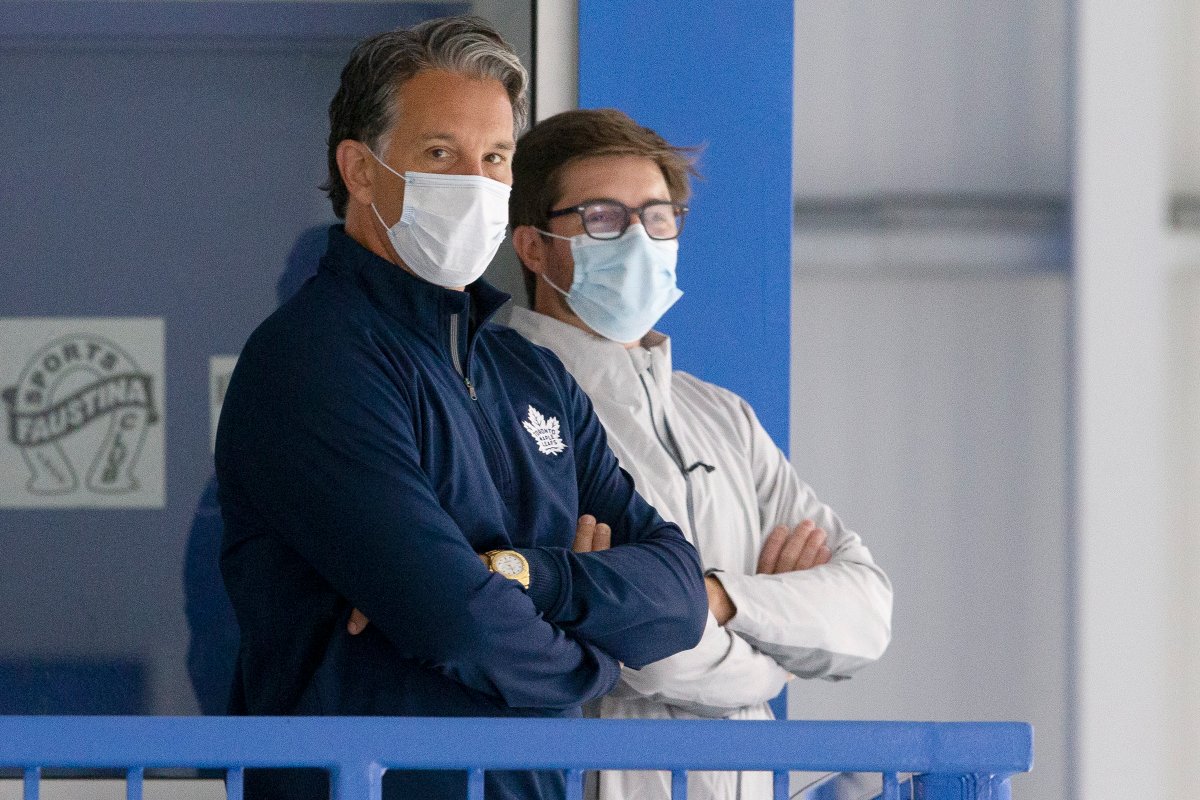
How do you evaluate the success of the regular season versus the disappointment of the playoffs? How much weight do you put on one versus the other?
Dubas: In the end, our goal is to win the Stanley Cup. That can only be achieved in the playoffs. When we don’t reach that in the playoffs, I think you have to be very realistic and objective in saying you fell short.
One of the things we have tried to focus on, especially now going back into the Atlantic Division: If we do not have our focus set on having a great regular season and building up the habits we are going to need to have playoff success in the regular season, we are going to be in a difficult [spot] there.
Everyone in our organization knows we are going to be going head to head with Tampa, who have won the Stanley Cup two years in a row. Boston is a perennial contender. Florida was one of the best teams in the league last season and lost to Tampa in the playoffs in a great series. Montreal is in the division, and they obviously beat us and went to the Stanley Cup Final. You have Ottawa, who has been very open about what their aspirations are, the way that they finished last season, and the job Pierre and DJ have done there. They aspire to be a playoff contender as well.
You have six teams in our division that are very open about what their aspirations are in terms of playoffs. One of those teams for sure would miss and thus be greatly disappointed. For us, that lets us hone in on the fact that if we don’t have a great regular season, we are not going to set ourselves up to get to the playoffs. You can’t just get there and flip a switch anyway. It is greatly important.
That said, I think we all know in our organization that our team has to begin to have success in the playoffs. The fans and media alike are not going to be overly satisfied by another record-setting regular season. They want us to win the Stanley Cup. That requires winning four playoff rounds.
In my role, you try to keep the focus on the day-to-day and what is required to have success in the long run but also know that we have to set ourselves up to have success and break through when we get there, which we haven’t done yet.
Do you think this is your last chance to do that? You have been here seven years now.
Dubas: This is my eighth season now and going into the fourth as General Manager. I never think about things that way, but I also don’t shy away from the question, either. It is certainly fair to ponder, especially given the fact that we are going to return the same core group, which I have great belief in. If I didn’t have belief in it, knowing the consequences to the team, we wouldn’t have returned it.
It is certainly fair to say that if there aren’t changes in our performance in the end, there will be changes to the organization. I think that comes with the territory of operating in a market like this and operating with a team that hasn’t reached its potential in the playoffs thus far.
Was there anything out of the player exit interviews that you can share that some of us may not have heard about?
Dubas: I thought the players, especially after the season… We lost on a Monday night, on Tuesday everyone took the day, and on Wednesday, we took our team photo and did the exit interviews. It was the most accountable that I have heard the players just in terms of what their role was in us falling short in the playoffs. It was also the most adamant I had heard them about the fact that they believe in themselves and believe this group will push through.
I know no one wants to hear that right now. They don’t want to hear us say anything. They want to see us go out and do it. I appreciate it. But to me, it was a good sign from our group that they were very, very open about what their responsibility was for the fact that we had a 3-1 lead in the series and weren’t able to get the fourth win — and also the fact that they have a deep belief in this group’s ability to get there, and that they were going to back up those actions over the summer in their training and how they come into the regular season.
We are still just under two weeks away, and we mostly have every player in our facility each day, which we have never had before. That, to me, shows a great level of commitment in how serious they are about this upcoming season and the fact that there are, rightfully, a lot of doubts about whether this team can do it. They are going to get to proving themselves and our organization right starting on October 13.
As you look back at the series against Montreal, what was it that caused your team to lose the last three games and ultimately the series? Was there a specific thing? Was it a confidence factor?
Dubas: I think Games 5 and 6 were very similar. In both of those games, Montreal came out, got the lead, and then we stormed all the way back. I thought we played really, really well. We pushed back in the games when we could’ve gone quietly into the night. We tied both games. We were down three in Game 5 and two in Game 6 on the road. We came back, tied the games, had chances in Game 5 to win it in regulation, and had copious chances in Game 6 overtime to win it as well. The puck didn’t go in, and that set us up for Game 7.
I thought Game 7 was a totally different set of circumstances and a different mindset that ailed us. I thought in Game 7, we were passive and we were on our heels. We went into the middle of the ring in a championship do-or-die fight and really allowed ourselves to feel out the opponent rather than go and asset ourselves, get on our toes, attack it, and assert our style of play.
That has sort of been the thing that has ailed us if you look back at all of those similar games, going back to Columbus in 2020, against Boston 2018 and 2019, and against Washington even in Game 6 in 2017. That is the same type of thing that has hindered us in the past shining through there.
That is the one thing we need to change: When everything is on the line, are we going to be able to be at our best and assert ourselves? I think the only way we can get through that is to openly talk about it and not dance around the fact that it doesn’t exist. Lean into that criticism and reality, and go right through it.
How do you get over the hump of being afraid to lose? Some of these players aren’t teenagers anymore and need to push through that.
Dubas: I agree with you. We have to help them through it as an organization. Last year, as we went into the playoffs, the narrative coming out of our room and organization was that we were different and this year was different. When you tell everybody that, they are largely going to say, “Okay, we might believe you because the regular season has shown that so far, but we are only really going to know that when the pressure ramps up and you have to go through that crucible of the biggest test.”
In that moment, we reverted back to what the team has been before. Rather than dance around it and look back on it, we have to look ahead and say, “We are going to be tested in that way again. This is what has happened in all of these different times that we have done it. How are we going to change it?”
The way that you start to change something when it is an issue is that you talk about it, you’re open about it, and you don’t try to hide from something that is uncomfortable or something that has ailed your team in the past. You have to look at it and go right at it. That, to me, is what Sheldon, the coaching staff, and all of our conversations with management, the players, and the coaching staff have been about this offseason.
I know that everyone will be looking at the year and asking themselves, “They can have whatever regular season they want, but how are they going to respond in those moments?” That will be the ultimate test for our team. I think it’s what everyone here is looking forward to, but in order to get to that point, we have to have a great regular season first.
Kyle Dubas on the decision not to trade a core player: “It might’ve satisfied the masses and the team might’ve looked different, but there was nothing that came across where I felt we would’ve been absolutely better”
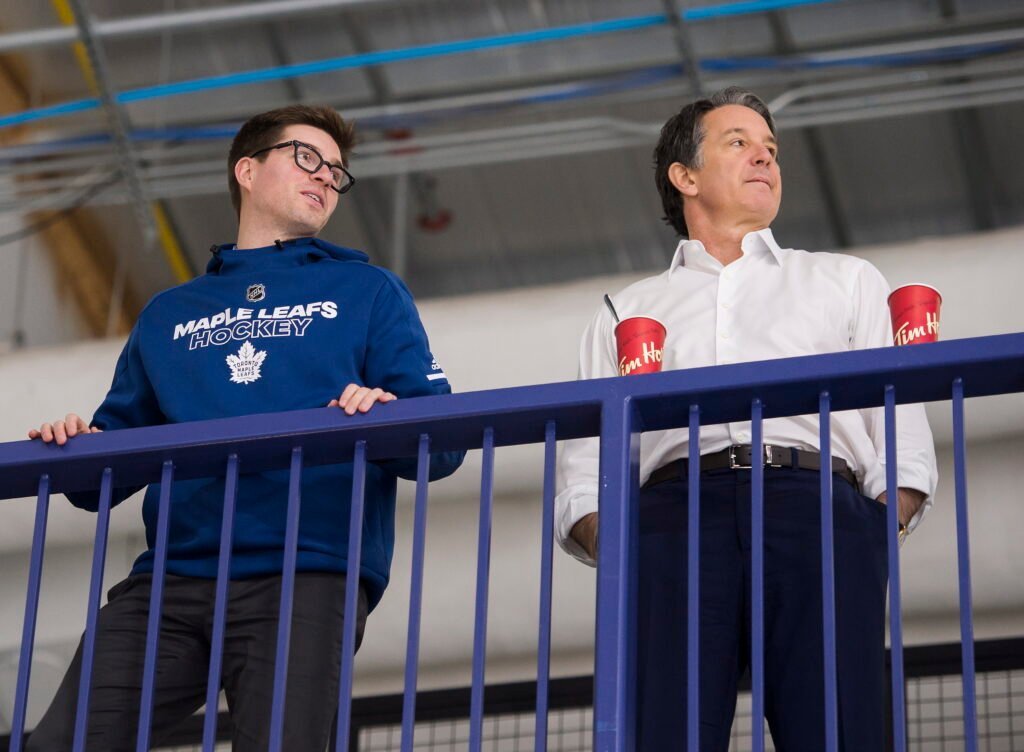
One of the questions you would have asked yourself is, “Where do we need help? Where can we be better?” With the cap being what it is and the cost of the current roster being what it is, your flexibility is limited. That leaves you with the potential of a trade. The question it leads to: Is there a move we can make that we don’t really want to make but can help our team? Inevitably, that move would be a core player. How seriously did you contemplate the possibility?
Dubas: We looked at everything. We look at everything regardless. I know there is a feeling that the core group is protected and we have a strong belief in them, but I think we would look at anything that would improve our team overall. The time for sentiment and different things like that have come and gone given we have not broken through to what many deem is our potential. None of those opportunities, we felt, came along this summer where it was going to tangibly improve our team. It would’ve made us different, but it wouldn’t have necessarily made us better.
In the end, the decision was, whether the team has reached its potential or not or whether or not there is a huge amount of doubt around the team, I have an incredible amount of belief in the talent of the core group and who they are as people. I also have come to appreciate over my brief time in this league and in my time in others that if you really believe in something and it doesn’t necessarily go the way you want right way, it is in those moments — where you are staring down the barrel of a high amount of pressure, criticism, and doubt — that your belief really, truly gets tested.
That is how I feel about our group here. I am excited for them to pick themselves back up and get back at it in a few weeks and get into the season. If things come up along the way that can improve our team, that is the job and we will be aggressive in trying to do that.
At this moment, none of those things have come across where I felt our team would be better. It might’ve satisfied the masses and the team might’ve looked different, but there was nothing that came across, from the day the season ended against Montreal until today, where I felt we would’ve been absolutely better. In the end, that is the position I am in — to try to find those opportunities, not just to make us different and potentially give myself some room to breathe amongst the public and media.
Kyle Dubas on team toughness: “In terms of the players that we signed, we certainly looked at their competitiveness, their toughness, or whatever you want to call it… It was really important to us in terms of how hard they play”
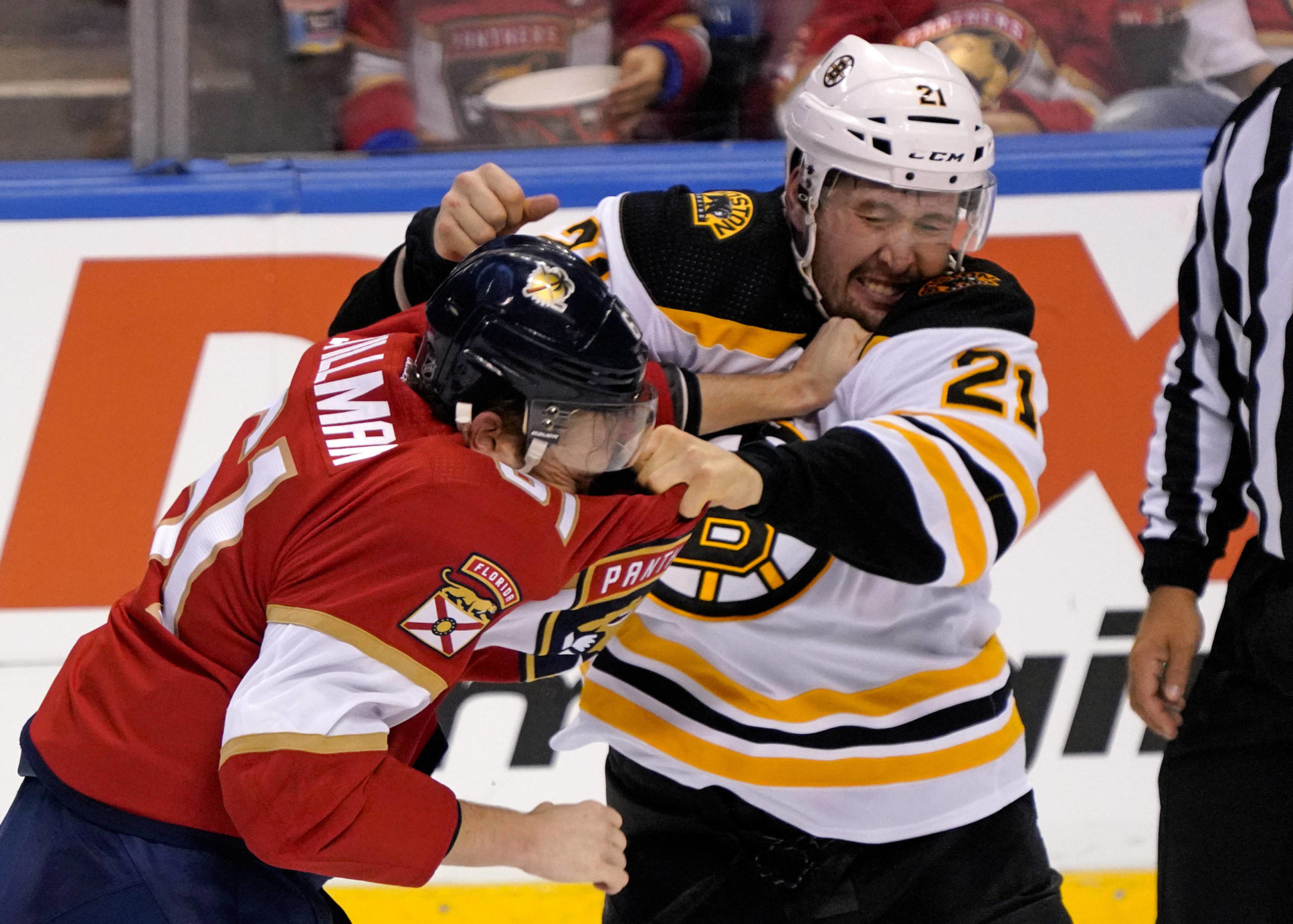
Is your team tough enough?
Dubas: That is a question of any team. The game is so different now. We went into the offseason, and the players that we acquired in free agency, especially, bring those different elements.
We brought back Wayne Simmonds. We acquired Nick Ritchie. Nick is a good player who can score and play up and down the lineup, but he is also a very, very tough young man in the way that he plays. Michael Bunting is a local player we signed from Arizona. He doesn’t have a long fight record or anything like that — that really doesn’t matter to us — but in terms of how he competes, where he scores, and the areas he is able to get to, that is what was really important to us. In signing David Kampf, he is someone we feel can take on a huge responsibility defensively up front.
In terms of the players that we signed, we certainly looked at their competitiveness, their toughness, or whatever you want to call it, and that was really important to us in terms of how hard they play and where they were able to have success as players — around the net, defensively, and such. We are happy with where we went there.
We obviously lost Zach Hyman, who is a very competitive player, but that is going to happen. With where the cap is, if you want to be a competitive team and you want to contend, every contending team last year has lost a number of core players that were free agents. I think you are going to see more and more of that because you can’t just extend the players and hope you can figure the cap stuff out later if the cap isn’t going to go anywhere. I think you are going to see a lot more guys playing out their UFA seasons.
Is it a fair criticism that you have designed a great regular season team and not a great playoff team?
Dubas: I think it is fair until we show that we can have success in the playoffs. There have been a number of teams over the years, in hockey and other sports, that have been levied with that same accusation or claim. You can fight it, try to refute, and get sensitive about it, or you can say, “Geez, until we show we can win in the playoffs, it is right.”
It is up to us to go out and prove that. It is not on anybody in the public to defend us or to shelter us from that claim. We have to go out and do it. Until we do, I think the criticism is fair. It is on us and only us to prove that we can. Until we do, it is certainly fair of anybody to ask any questions they have or to really ask whether we can. I have no issue with that at all.
Can you take your core, who are not known to be physical players, and ask them to be more physical? If you can achieve that, is that not a much better solution than having one or two guys who go out there and try to bang somebody?
Dubas: With anything, whatever is accomplished will be our core guys elevating themselves. They are still so young. With the exception of John and Morgan, they are all still in their early 20s. Now, the sun is setting on the early portion of their 20s, but that is where they are at.
Last year, to speak specifically about Auston, I thought he took big steps in how hard he played and how he competed all throughout the rink. I thought it led him to become one of the more dominant players in the league. In the playoffs, he continued with that same style of play. The puck just didn’t go in for him.
I don’t think these or anybody’s core group is going to run anybody over. When I look at Tampa, I think their core players are tough. I thought Montreal’s core players, whether it was Danault or Gallagher last year, were tough and physical, but it is not running around running people over. It is about how hard you work to keep the puck and get to the middle of the ice and score when it is hard to do that, and how hard you work to get the puck back.
Our guys, particularly Auston and William, showed huge signs of progress there last year, especially Auston. I think that is what propelled him into the conversation right in behind McDavid when it came to the Hart Trophy and different things of that nature.
Mitch Marner, with our club, has been on our penalty kill and a big part of our defensive units his whole time here. He has always had that element in my mind, and I think that is what makes him a special talent in addition to his scoring.
Our guys look around the league and see teams that have been faced with these same questions — core groups that have been faced with these same questions — having success. It is a great way for our players and our people to learn. As they are still young, they need to continue to push and develop.
They have to take those steps, but is on us to push them to get there. We have a responsibility there, and they have one. With the way last season ended, this year, more than any other year, I would expect to see massive evolution in everybody as we continue to push to try to win.
Kyle Dubas on Morgan Rielly’s contract status: “I don’t necessarily think we can look at what Chicago, Columbus, and Edmonton did and say that we have to follow suit with them”
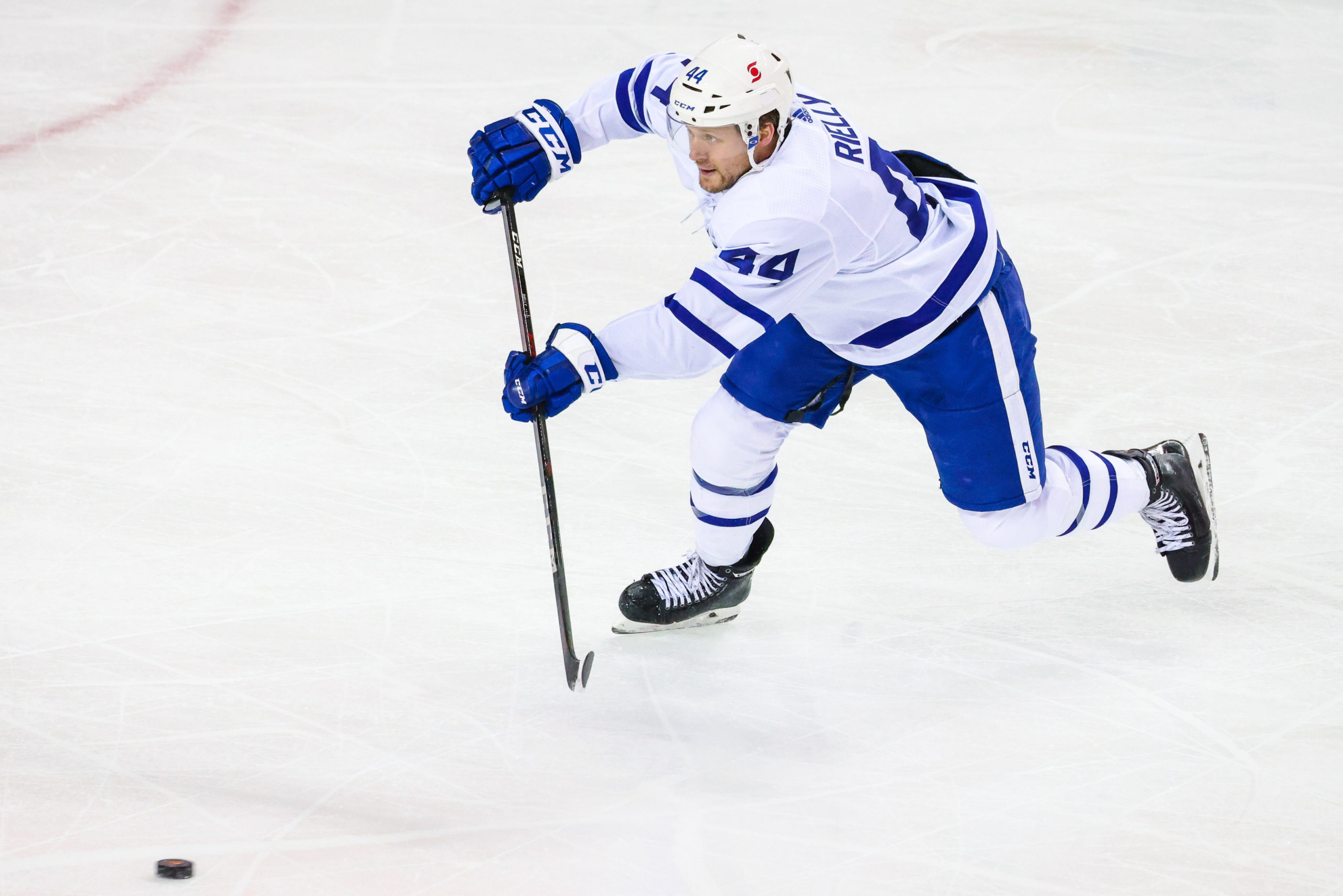
Zach Werenski, Seth Jones, and Darnell Nurse all signed big, new, spanking contracts. Morgan Rielly is going to be in that scenario at some point this season or into free agency next year. With the cap situation, how are you going to manage Morgan Rielly’s situation?
Dubas: More than ever, I think you have to look internally to your situation. I don’t necessarily think we can look at what Chicago, Columbus, and Edmonton did and say that we have to follow suit with them. There have been a number of examples, whether it is St. Louis with Parayko or the Islanders with Pelech, who are number-one defensemen as well for their teams.
Especially in this era where the cap isn’t going anywhere, you have to focus on your internal situation. We have Jake Muzzin and TJ Brodie signed for the next three seasons between $5-5.6 million. We know what our limitations are going to be. We like Morgan a lot. We will keep all of the contents of that private between JP Barry and myself and get into the season.
You know JP Barry is going to be bringing up comparables. That is the business you’re in.
Dubas: I think anyone can bring up comparables that favour them. It is up to the two parties to find a solution where everyone is happy and roll on.
There is no doubt that you want Morgan Rielly here long term, right?
Dubas: There are no doubts that have popped into my mind yet. Morgan is a great person and a great player for us. The only thing that I would caution on is that many more of these types of situations tend to play out over the longer-range rather than before the season as they have in the past — notwithstanding the extensions you have mentioned, but just with the cap situation and where it is at and the unknown of where it may go, whether it marginally increases or not in a year.
Morgan has been an excellent person and player for us and I don’t see any circumstance for us where we wouldn’t want to keep him.
There is some speculation out there about interest in PK Subban. Is it even possible given the cap situation?
Dubas: We get asked these all the time. This season is of massive importance, and any player that is a free agency a year, two, or five years down the road is really not our focus whatsoever. Our media relations team led by Steve Keogh give us all of these rumours as we go into these types of interviews knowing what might be asked. I can definitively say we have not thought a single thing about any player that is going to be a free agent a year from now.
Kyle Dubas on the team’s goaltending: “If we are healthier in net, we should be better”
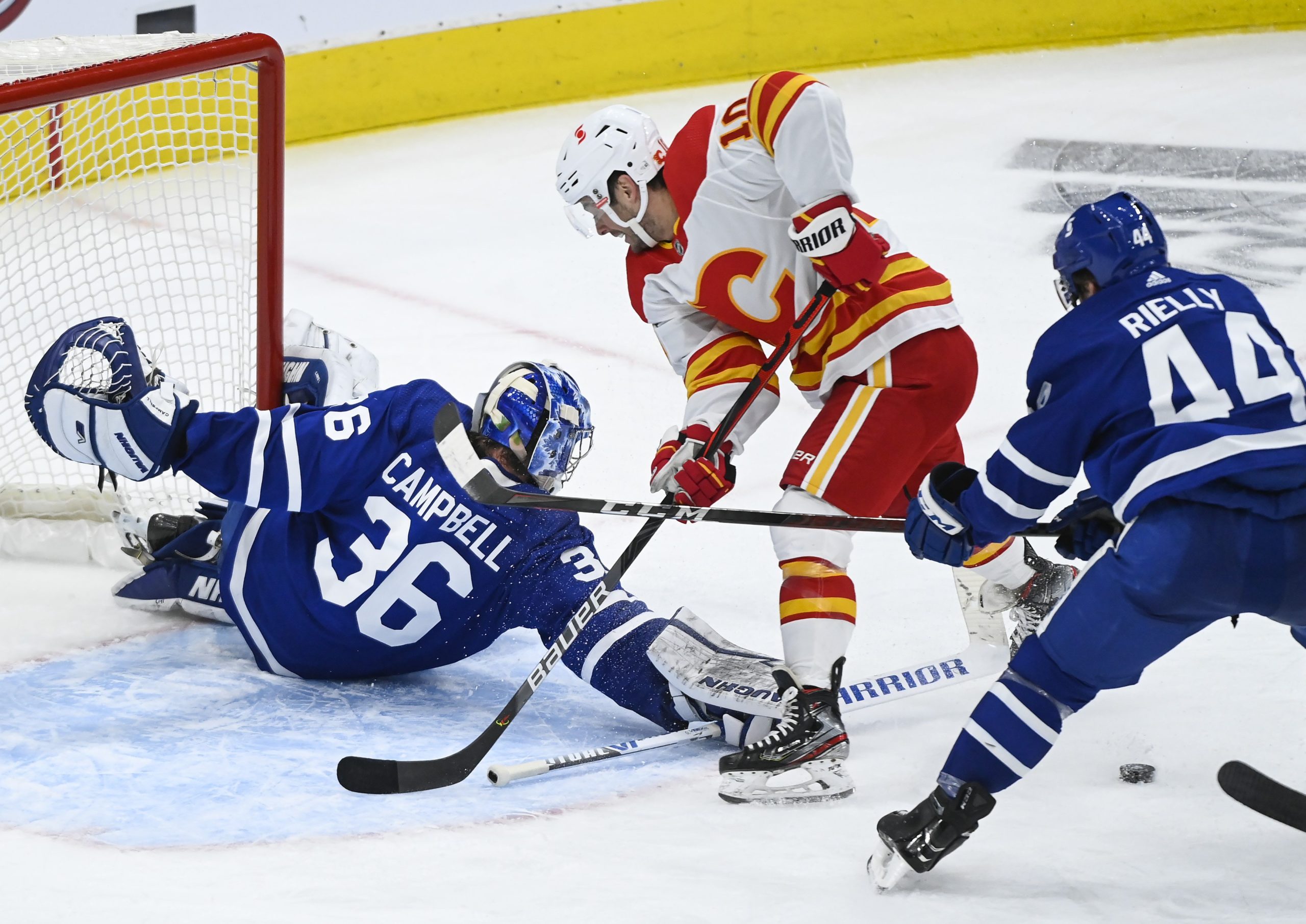
Is your goaltending better this year?
Dubas: With goaltending, you hope so. We are expecting Jack Campbell to come in, and over the course of a full season, he is going to have a chance to carry the ball. We like Petr Mrazek a lot. Our goaltending this year saves us a bit on the cap. We are hopeful these two guys can work together, be a really great tandem in the league, and over the course of the season, it will sort itself out as to who starts the first game of the playoffs after a good battle throughout the year. That will allow us to become a playoff team and assert our positioning in the playoffs.
Last year, Fred was injured for a lot of the season. We had to rely on Jack a lot, and he was injured, so Michael Hutchinson carried the ball and played quite well. We had to bring in David Rittich, so we had a lot of people not only playing but backing up. We had Joe Woll and Veini Vehviläinen. With the way the year was, the number of injuries, and the length of those injuries, it became a challenge. I am sure hopeful we will be healthier this year, and if we are healthier in net, we should be better.
Kyle Dubas on the Mitch Marner criticism: “Whether it is because he is local, whether it is because of his gregarious nature, his energy, and youthful enthusiasm he brings every day making him an easier target… I don’t know”
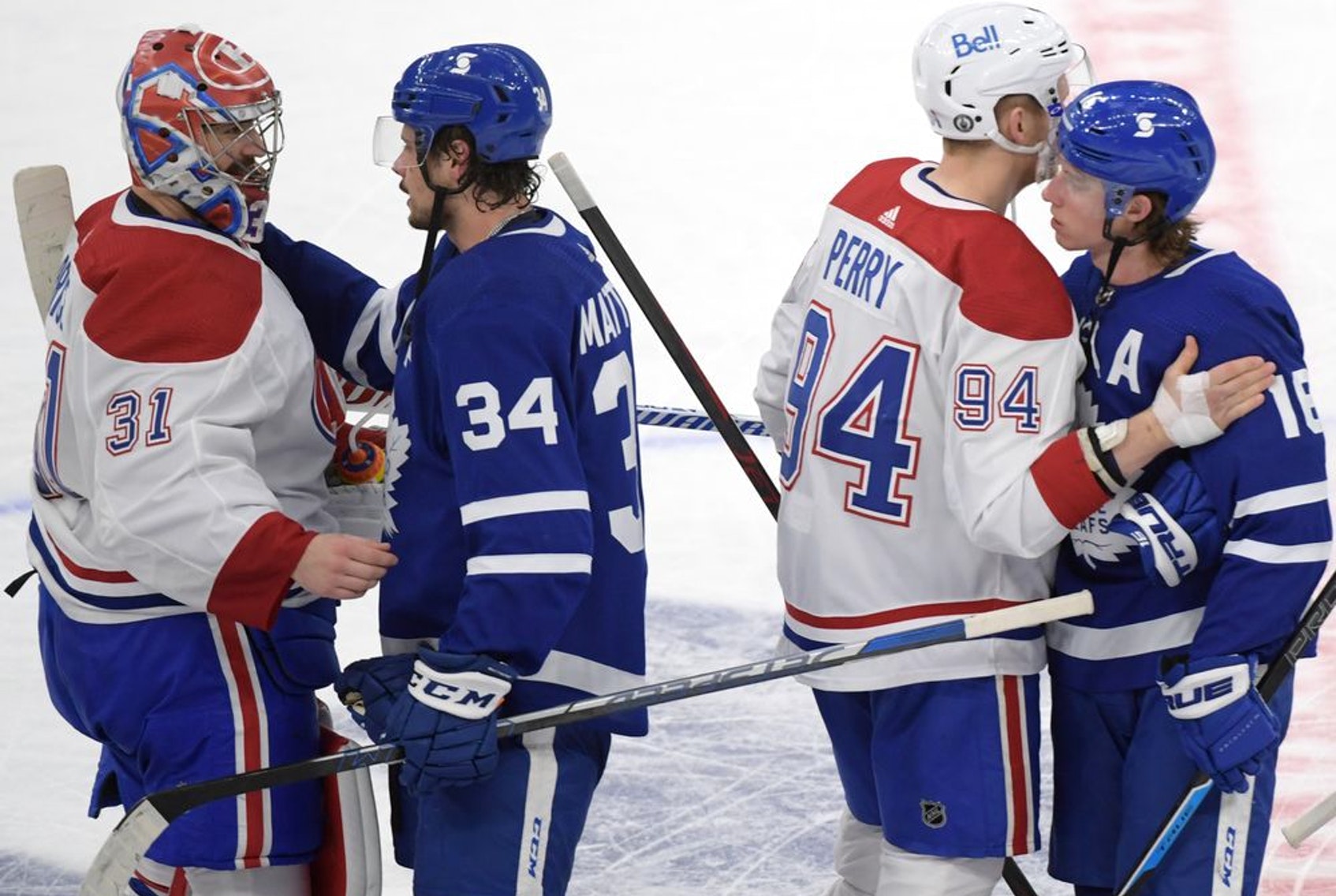
Jack Campbell took the losses really hard last year, and Mitch Marner understands the pressure of playing in his hometown. How do you manage that in terms of helping them become mentally stronger?
Dubas: I have known Jack Campbell for 10 years. He was on our team in the Soo 10 years ago and I knew him three or four years before that. That is him. Every loss he is going to take hard and put it on himself.
We have had a number of conversations over the last year especially about his demeanour, especially as he started carrying the ball last year, and how that impacts the team. If the starting goaltender is really down himself — especially when things really aren’t his fault — it can impact the team. It is trying to get his mindset to transform from more of a, “I am going to take everything on myself and blame everything on myself,” to, “I know where I am at. I am attempting to assert myself again as a starting goaltender over a full 82-game season. I have to carry myself in a bit of a different way while still being the person that got me to this point.”
That is Jack. Jack is such a wonderful person. If I was worried that it affected him day to day — the way he took the losses — and that it was going to roll over into the next game, I would have more concern, but I don’t with him.
Mitch went through at the end of last season something that a lot of players go through as they evolve. They are star players, they have produced big time in the regular season, and then people look to what they do in the playoffs.
The thing for Mitch for us is that he just enjoys the process he goes through every single day. He loves coming in. He has great energy. He has been around here this summer out on the ice. I don’t think he is going to change.
As I mentioned earlier, he can make an impact on the game in so many different ways. I think people look at his salary and expect that he has to produce at a certain level. My view of it is that if he is coming in and being himself, he is going to have a huge impact defensively, a huge impact on the penalty kill, and naturally, his offensive skill set is going to take over.
For him, it is just a matter of knowing why we value him. We value him for who he is as a person and everything that he does and contributes to our team in all facets of the game. The production on the offensive side comes naturally to him and will come naturally in the playoffs over time as we go through it.
I really think that criticism levied towards him from playing in his hometown — and the impact it may have on him and his family — will only help Mitch over time, especially as he deals with it more, learns to overcome it, and thrives through it. I think it is up to us to help him thrive through it.
Do you feel that Mitch was unfairly scapegoated by a fan base that was justifiably disappointed by the playoff result?
Dubas: Not to derail this discussion into something deeper, but I just think the world is so different now than it was before March 2020. Whether this is a political thing or that everyone has endured a pandemic or a combination of the two, I think the world is much more vitriolic than it was before. I think that manifested itself most on social media. That spills over into the more public domain of media in terms of people needing to elevate their voices, have their voices heard, and rise above the social media vitriol.
For whatever reason, last year, as the series ended… Mitch created a lot and had countless chances to score, but it just didn’t go in for him. He ended up being the one that people went after
the most, whether that is because he is local, whether that is because his gregarious nature, energy, and youthful enthusiasm he brings every day make him an easier target… I don’t know. I do know what he is about and I do know that he cares deeply about our team and helping us win and be successful.
We have all seen it in sports. The people who one year are highly critical and spew hatred towards somebody are just as likely next year to be the biggest booster of that person if they have success. Especially in this era we are going through, that is more true than ever. I am very excited to see Mitch capture that sentiment from the fan base with the way he will play this season and into the playoffs this year.

















